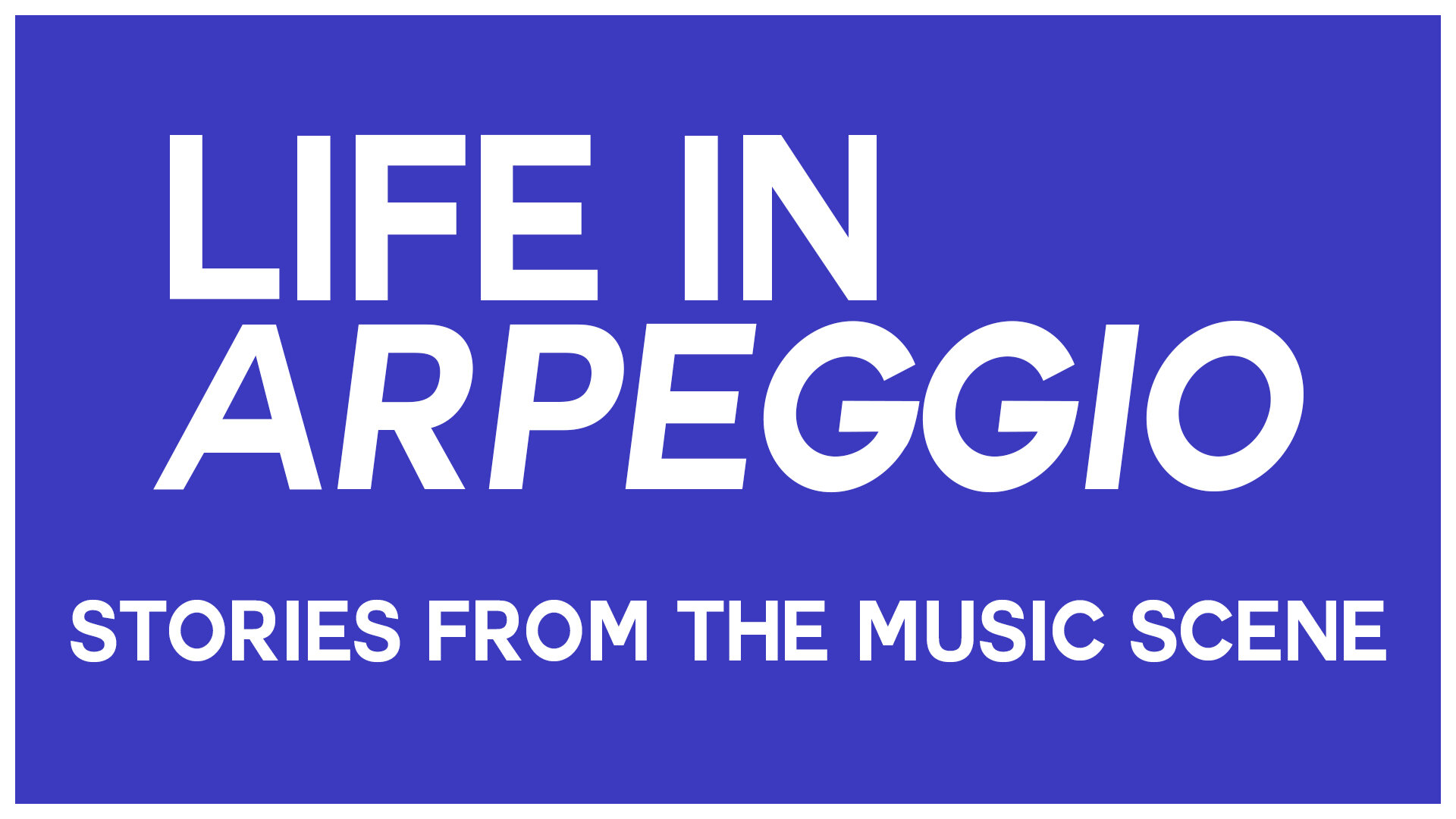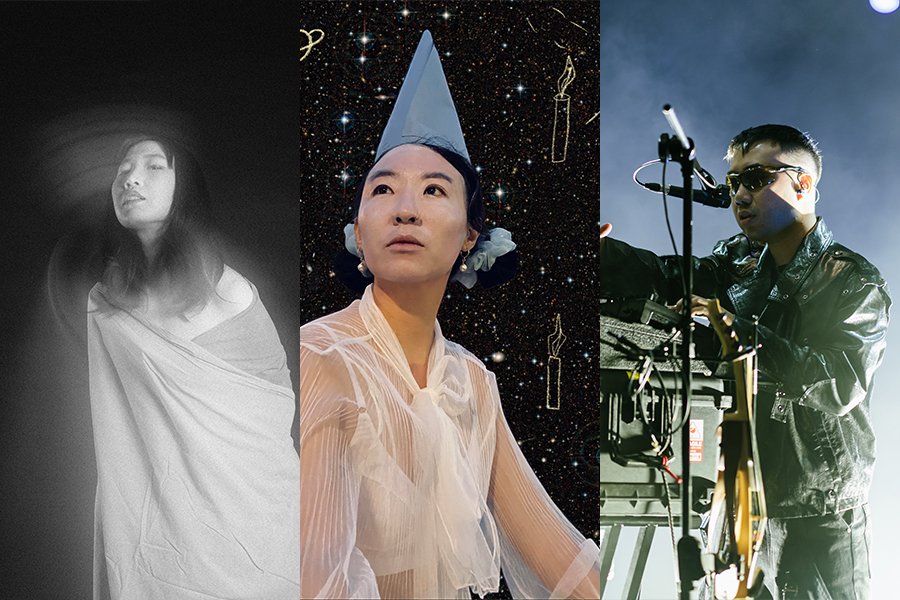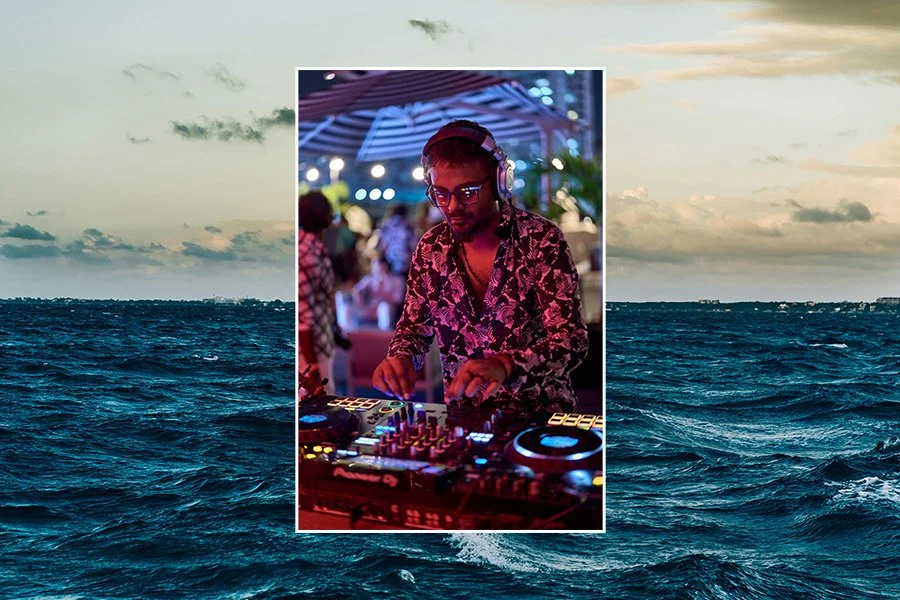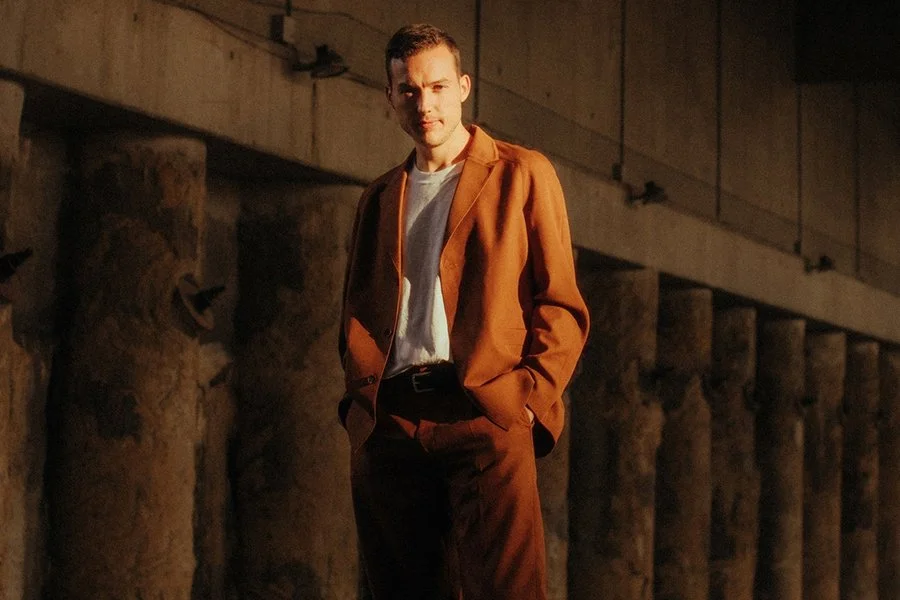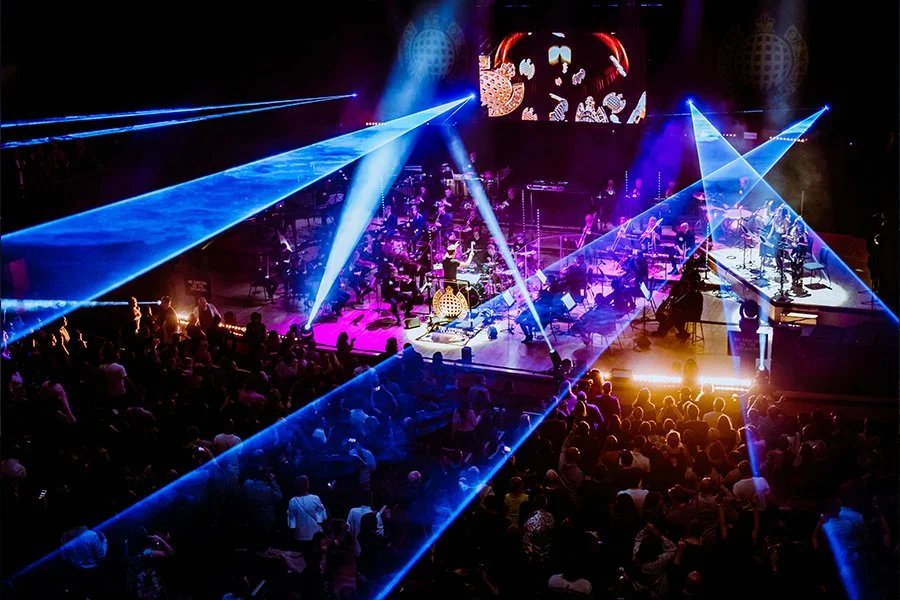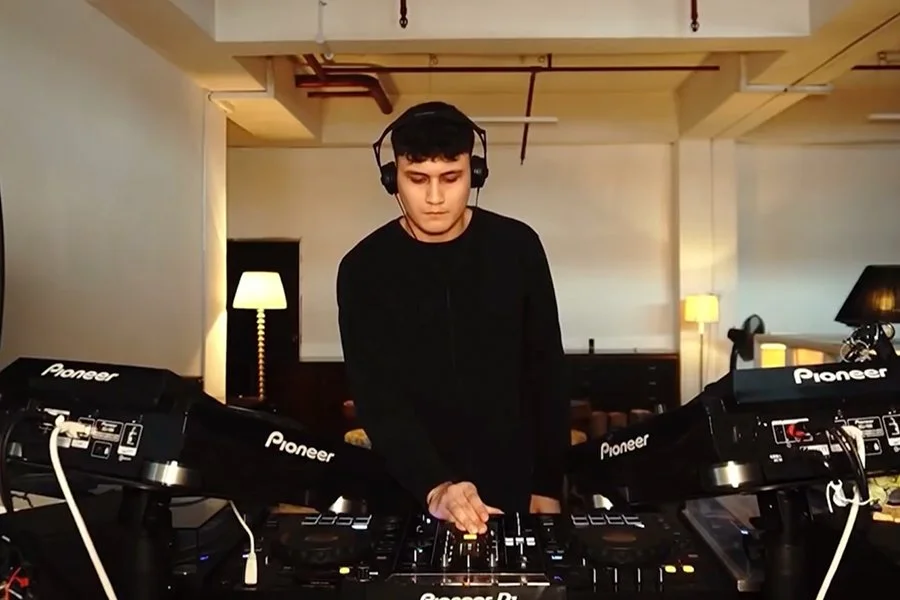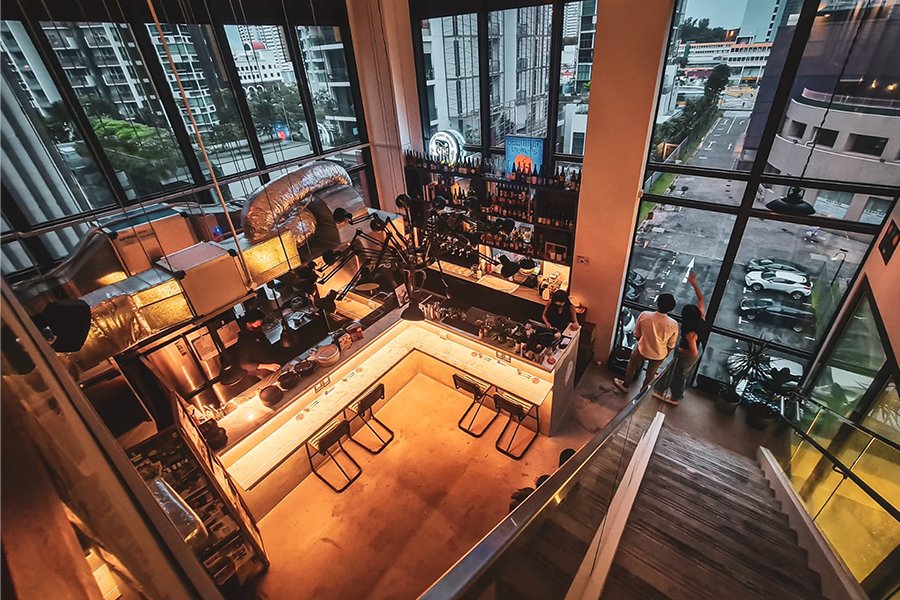Confessions Of A Soul Siren: NyaLi On Finding Her Voice And Refining Her Rhythm
NyaLi has a tight grip on her career, as well as the greatest instrument in her arsenal (Credit: Pris Tan)
The one attribute that’s perhaps most vital for any singer-songwriter is the voice; not just as a key instrument of expression, but an overarching, identity-stitching perspective that distinguishes her or his role in the scene from others. With astonishing natural talent and a headstrong outlook, Enya Lim – who goes by the artistic alias of NyaLi – is a stoic vocalist extraordinaire who stands out, hustling through the ranks with sass and class.
Shaped by soul and r&b in her formative years, the deft, smooth-toned songstress masterfully adopts these timeless genres into her repertoire, doing justice to their revered traditions while channelling contemporary vigour with intrepid experimentation. NyaLi runs a tight ship with her vocal control, boasting an aptitude that’s mellifluous in tone and versatile in placement; she can swerve from smoky serenader to tear-jerking balladeer fastidiously with her palette of vocal colours. It’s this adaptable characteristic that lets her voice shine in the multitude of sounds she dabbles in, from the ’50s doo-wop grooves of “Pancakes” and ’80s synth-pop nostalgia of “Just Yesterday”, to the fluid jazz frame of “Over and Over” and pulsating dance-pop allure of “Compass”. Wherever NyaLi’s voice lands, it makes songs glisten with its Midas touch.
Beyond her original material, NyaLi can be found contributing to other sectors of the music industry (Credit: Pris Tan)
With skills these valuable, NyaLi’s path to success has been far from an insular one. The performance veteran boasts an impressively expansive portfolio, with illustrious gigs at international venues like Carnegie Hall and Madison Square Garden, and supporting performances for icons such as Andrea Bocelli and Jacob Collier. Since returning back home to Singapore, the singer-songwriter has kept the engine running, with a local gig resume that ranges from large-scale festivals to corporate events, appearances on national telly, and a string of collaborations with homegrown rappers, producers and more. As a Berklee College of Music graduate, NyaLi also believes in sharing her wisdom as a music and vocal coach, inspiring others with the power of music. Altogether, her efforts make up a career that continues to pile up, and she’s loving every step of the climb.
Without further ado, I chat with the committed NyaLi about where she’s going in her ascent, how she discovered her voice, the effect of soul on her artistry, and paying it forward with music. She confesses it all in this profound interview.
“I’ve low-key been singing since I was two. It’s just evolved into a more publicly-known, livelihood-generating thing.” (Credit: Lauren Desberg)
First up, did you ever have any trouble finding your singer’s voice? Was it a natural discovery, or years of honing and refining?
Wow good question. I’d have to go with years of fancying myself a character in Disney and Dreamworks animation OSTs, while belting Mariah Carey and Queen and Peter Cetera in the car, while having a bunch of Ella & Louis, Stevie Wonder, Eric Clapton, and Elton John as the sonic backdrop whenever I would be hanging out at home. Oh, not forgetting Simon and Garfunkel and Boys II Men; always Boys II Men. Those are just the bare essentials. You could say Papa Lim was and still is very much an audiophile.
So it was kind of a no-brainer for baby Enya to ditch Brownies for Choir in late primary school, which became a thing until the end of secondary school. I also began singing in church – my most Catholic days – at that teenage point. I guess at some point, realisation hit that my solo vocal sound was kind of neat on its own, and cooler, that my ears were a pretty solid pair for hearing and retaining certain things like harmonies, that not just anyone can. I definitely have at least a couple of names firmly in mind – again from church – who first pointed this out to me before making me sing more solo-type things and introducing me to music beyond liturgical, choral, and classical styles.
Long story short, I’ve low-key been singing since I was two. It’s just evolved into a more publicly-known, livelihood-generating thing… until COVID. But let’s not start on that.
“Songwriting has always been an organic, intuitive process for me.” (Credit: Pris Tan)
What themes do you tend to explore in your songwriting? Do you always wear your heart on your sleeve, or do you sometime imagine yourself in fictional scenarios?
Identity. Finding yourself. Relatedly, the journey of self-discovery. Ephemerality. The human condition really – universal and personal sentiments include pain and heartbreak, fear, longing, uncertainty and apprehension; that we can all relate to. Trite, but perennially resonant.
How does a song come together for you? Does it begin with the exploration of chords, or motifs you record with your voice?
Songwriting has always been an organic, intuitive process for me. Just like cooking or baking, the process and outcome are never really the same, even when it's the same thing you have in mind to make. Not that you’d want two songs or dishes to be exactly the same, because where’s the fun in that?
When I work with artistic collaborators like a fellow songwriter or producer or beatmaker, it tends to be that I bounce off their energy and vibe because usually they’ll have either a song idea or have already laid down a beat for me to add to. In that way, you could probably say I’m quite malleable… I mould to what’s there, and to the subconscious challenge of doing so.
That said, the manifesting of my own NyaLi song ideas usually starts with a melody, followed by chords, and the form and arrangement – simply vocals and piano recorded mostly on my iPhone voice memos, a lot of which have gotten buried and forgotten actually. I read somewhere: you know you’ve got something worth developing when it’s as pared down as that, but the music and words still get to you on a deeper more visceral level. That’s stuck with me and helped sift out the worthier ideas from the less worthy ones.
“My rationale is if I’m happy, I can sing.” (Credit: Kyle Ryan)
You’re a veteran performer with numerous events under your belt. Do you still get butterflies in your stomach, and do you still prepare a lot beforehand?
Is it weird to say at this point, my butterflies are soooo mellow and domesticated that they’re kind of friends? I get excited more than anything, for the bigger stages and more curated shows. These days, it boils down to the essential questions: Do I give two hoots about the music being presented and the people I’m presenting it with (as opposed to one hoot)? If it’s my originals, chances are the answer is yes; there is usually a little more anxiety with originals too. And if the answer is yes, chances are, I’ll assertively cancel other plans for the day so as to chill and zen out before the show. Getting sufficient rest the night before is also a responsibility that I’m trying to respect better. When you’re tired, everything sort of becomes as much of a liability as a tool – voice, ears, showmanship, improvisatory wit!
I don’t subscribe to the whole avoiding certain foods thing though; the spicier the better, coffee and tea are staples, and dairy and oily foods are fine too. Ooh, and wine is definitely always welcome. In fact back in the day when I had my regular gigs, a glass of red would be the perfect primer for the first set. My rationale is if I’m happy, I can sing.
Whoa, that’s surprising. So you don’t make plenty of sacrifices in life to keep your voice in tip-top condition?
Honestly, it really doesn’t feel like I have given up a lot of fun or goodies to be a singer at this capacity. As previously mentioned, I eat what I like for the most part, and try to defer to my body’s need for rest by perhaps, going home instead of hanging out. This includes vocal rest by the way, which could mean anything from saying no to a jam to something more deliberate, like not talking for the entire afternoon.
“If teaching music means helping more people connect to themselves and others through it, I really don’t think that’s such an awful thing.” (Credit: Alex Joseph)
You’ve pretty much been learning music all your life, from your classically trained background to your degree in Berklee. And now, you yourself are a music educator. Do you believe in paying it forward when it comes to teaching music?
I believe in karma (sorry, total hijack of Paying It Forward there). On a more serious note, I am into doing good where you can, how you can. In my case, it so happens that singing is a niche skill set that is desirable and demanded, which I know slightly more about than the average person. I’ve acquired the bulk of my current sound through trial and error, as well as been through not-so-great teachers – well-intending humans who excel at the actual practice but also suck at breaking it down for those in learning mode.
If my own deductions from both these things can be condensed into friendly bite-sized pieces and applied by the layman – who likes to sing classic karaoke hits, or is a diehard fan of Ariana Grande for example – that equips the layman, while also giving me an added perspective on singing. It’s a win-win, no? Every time you explain something to someone, you enrich your understanding of it, which could also add more depth to your own application. Anyhow, if teaching music means helping more people connect to themselves and others through it, I really don’t think that’s such an awful thing.
Some of your past singles like “Just Yesterday” and “Compass” have featured more electronic edges. Do you foresee yourself venturing into more electronic territory in the near future?
Never say never, right? Moreover, needing to stay relevant to listeners’ evolving demand is a thing. If that means spending more time in the EDM lane then so be it, even if it might not be my first natural inclination. And I don’t know, I’ve never really liked categorising music because a lot of my go-to ear candy doesn't fit neatly into genre boxes; it’ll have elements from this style and that style fused with so-and-so cool trick from the modern production toolbox. Take trap, which is kinda trendy these days; it isn’t exactly electronic in the sense of EDM at all, but definitely contains edgy electronic sounds and effects. Sound libraries and effects plug-ins are a dangerously fascinating rabbit hole that I haven’t so much as begun to descend, and already I can spend hours on music software.
Going off on a tangent, I’d actually love to try writing to a trap beat. Is that wildly out of character? In any case, my music will always be lined with soul… and more cynicism than not.
Another electronic endeavour was your recent collaboration with ZIONN, “Where We’re Going”. Are you picky when it comes to seeking collaborators? What do you look out for?
I’m tempted to say I make enquiring collaborators fill out a Google application survey… maybe I really should? [jokes]. Most of my collaborators are friends or friends of friends or some nth degree of friend in the circle of music makers. This includes mostly fellow full-time musicians that I know from music school days, to peers I’ve gotten to know through gig things in the local music scene and beyond, to people who find me online and cold message me. With this last group, I’m definitely more careful because Internet weirdos; you can never really tell until you can. Working with muso friends is quite a no brainer – if I already vibe with a musician as a human being, it is majorly gratifying to cook up original music together in the studio.
With the online hit ups I do ask questions: about the project, its history, concept, main collaborator’s profile, other parties involved if any. It’s a bit of a back-and-forth process at that stage. I do ultimately go with my gut feel, and so far it hasn’t let me down. I'm incredibly fortunate that in all my collab experience back home and abroad, people have been seriously dope, sincere, and passionate 9.5/10 times. Genuine as human beings too – that really matters.
On the flipside, you have releases that are more downtempo and soulful like “Don’t Wanna Say” and “Colours”. Are you most natural and at home with this style?
Not sure if I’d peg it as ‘most natural’, but you definitely identified right that I gravitate towards a chill vibe, and definitely love pouring on the soul sauce. I suppose I can’t stop what I love from emerging in my own art, and it makes sense to me at least, that the culture you dig will leak into culture you yield.
“The culture you dig will leak into culture you yield.” (Credit: Pris Tan)
Did you have any local champions of soul and r&b growing up?
Without doubt, I idolised Alemay Fernandez starting in my late teens, and kind of still do in many respects. That voice and stage presence; she’s such a queen, both as a performer and human being. A night hanging out and listening to Alemay live – I’m talking pre-COVID – used to be such a joyful treat every now and then. Vanessa Fernandez has also become something of a role model since my return home at the end of 2018; she’s a bit of a fairy godmother really! Sage, oozing zen goddess vibes, and always looking out for her people and charges. She’s a treasure trove of onstage, backstage, media and events production experience personified, with glorious vocal chops to boot. So grateful for her nurturing aura and wisdom-sharing.
“I’ve never really liked categorising music because a lot of my go-to ear candy doesn't fit neatly into genre boxes.” (Credit: Tarcia Rene)
Can you share more about any upcoming releases you have for the rest of the year and 2021?
Happily! My next release will be a la holiday mood music landing sometime early December, featuring the fiery all ladies’ groove collective, Feefifofemme that I sing lead vocals in. It’s got a fun samba groove that we’re hoping will get everyone a foot tappin’ and head bobbin’ to. The lyrics were specially written with COVID in mind, so keep an ear out! Also, it’s special because this release marks a first for the band, as my recording studio band.
Concurrently I’m working on four single projects with different collaborators – two local, two international – that are all somewhere on the spectrum of acoustic singer-songwriter vibe. At the risk of being irritatingly vague, that is as much as I’m going to reveal about those now.
“The coolest bit about music and the arts for me has to be that it is hardly ever a one-way transaction.” (Credit: Tarcia Rene)
And lastly, what kind of impact would you like to have on the scene as NyaLi? How would you describe the artistic essence of NyaLi?
Loaded questions for the scrambling brain! To be honest, the responsibility of being an original music artiste in society in general, and the Singaporean one specifically, is something that I’m continually unpacking and figuring out via trial and error – university of life, right? Having listeners react intuitively to my songs because they relate personally to the experiences and sentiments articulated is both extraordinarily humbling and immensely gratifying. Because even if it’s just one person that is moved, it affirms the power of music to connect strangers and overcome differences. That is impact enough for me.
The coolest bit about music and the arts for me has to be that it is hardly ever a one-way transaction: the creators and makers of music are actual sentient beings too, and having all sorts of feedback from our audience impacts and inspires us, just as our music might impact the individuals it reaches. An ongoing cycle.
And boiled down, I’m pretty sure the brand essence of NyaLi reduces to free-spiritedness, raw honesty, and a cynical touch of sass. Which I think you can hear consistently in the sound catalogue up till now? A different perspective on this is most welcome!
(Credit: Tarcia Rene)
You can now listen to NyaLi’s repertoire on her Spotify page. Visit her official website, Facebook page or Instagram channel to stay updated with her activities.
